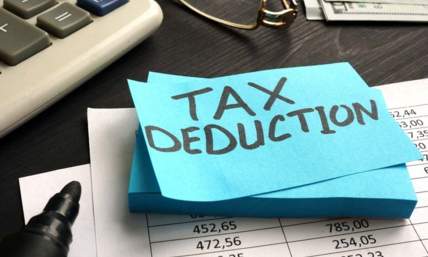Why Do I Owe Taxes To The IRS? And How to Minimize Them
You paid taxes on every paycheck. So why are you holding a bill from the IRS? Most Americans tend to overestimate their tax withholdings as part of our national aversion to paying taxes. The idea is a strange one given that we have no problems paying all our other debts. But to be fair, when the IRS comes to collect, it doesn't mess around.
The average tax refund is around $3,000, but changes in tax law or your finances might find that you don't get a refund. You might owe money instead. "Why do I owe taxes?", you ask? There's a good reason. We'll show you why and how to avoid a tax bill again next year.
Why Do I Owe Taxes?
Given the intricacies of the IRS, there could be many reasons you owe taxes. The most common reasons are simple.
1. Not Making Changes to Your W-4
The 2017 tax bill attempted to lower taxes, but the IRS says that won't be the case for everyone. Sure, it lowered tax rates, but it also did away with many itemized deductions that you counted on in previous years. During the first month of filing season, the average refund dropped by 8.4 percent. Not all tax return changes are Congress-related. As soon as you stop claiming dependents, you'll see your rate go up.
So, you should be sure to adjust your paperwork as soon as you can no longer claim your one of your children as a dependent.
2. You Earned Extra Income
Anything that you don't earn from your primary W-4 employer is still subject to tax and comes with a 1099 form. To pay tax on your extra income, you'll file a 1040 form, which covers everything from your side hustle to lawsuit winnings to money earned from property.
3. You Live In A High Income Tax State
If you live in California, Connecticut, New Jersey, New York, or Pennsylvania, you may see a tax increase. There are new limitations on deducting non-federal taxes. So if you live in a high tax state, you may find yourself paying more to the federal government.
Click Here to Create Your Form W-2 in Less Than 2 Minutes
How To Lower A Tax Bill
Short of earning less money or having another child, there aren't many good - legal - ways to lower your taxes. However, you're not out of options yet. Lowering your tax bill will likely require you to make contributions elsewhere. However, you can use those contributions for other things, like retirement or expenses, rather than handing them over to the IRS for good. Here's how to get it done.
Also read: What Qualifies As Proof Of Income?
Max Out Your IRA Contribution
It's possible to write-off your IRA deductions if it is your only retirement plan (i.e., you don't have an employer contribution). You can put $6,000 in your IRA in 2019 (it was $5,500 in 2018), and get a write off if you made less than $123,000. The good news about your IRA contribution is that it doesn't need to be done by the end of the financial year. You have until tax day in April to meet the maximum contribution, which makes it a great last-minute strategy for lowering your tax bill.
Fund Your Health Savings Account
The health savings account trick works for those who have insurance with a high deductible. By contributing $3,500 per year to an HSA, you can deduct it from your taxes. If you have a family, you can contribute $7,000. HSAs are a good way to keep hold of your money and also save it for something critical, like the cost of health care.
Switch Up Your W-4
If your tax bill is the result of a poorly managed W-4, go back to the drawing board and be more conservative with your withholding estimates. Remember, you don't have to wait until the end of the year to update your W-4. You can do it at anytime Your best bet is to go through your W-4 and make sure you are asking for enough deductions.
Do you know how to fill out your W-4 strategically? Try this W-4 withholding calculator.
Deduct Medical Expenses
Did you have a medical event last year that resulted in bills totaling more than 7.5 percent of your take-home pay? You can write those bills off your taxes. Did you make $50,000 last year and spend $5,000 on excess medical bills? Your minimum threshold was $3,750. So, you can write $1,250 off your taxes. Keep those receipts!
Make Purchases Strategically
Worried about your tax bill? Make big purchases strategically. For example, if you want a big expense to count for this year, buy it in December 2019 rather than January 2020, so that you get the deduction. Unlike retirement contributions, itemized deductions like this can only occur in the tax year.
On the contrary, if you are worried about your tax situation, hold off on big non-deductible purchases until you know your liability. Paying your tax bill is important because the IRS will charge fees and penalties if you don't pay on time. Even if you get a filing extension, you need to pay by the original April deadline.
Why Do I Owe Taxes?
Are you still wondering, "Why do I owe taxes?" You're not alone. By February 2019, the number of refunds already dropped by nearly 30 percent. The answer to why you owe taxes is likely in your pay-stubs and W-2. Do you have all your tax forms? Click here to create your Form W-2 in only two minutes. Do check out the paystub maker if you need to produce your own paystubs too.















